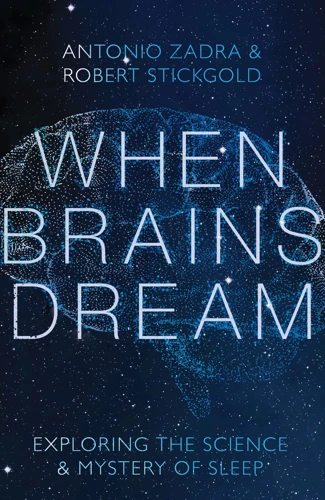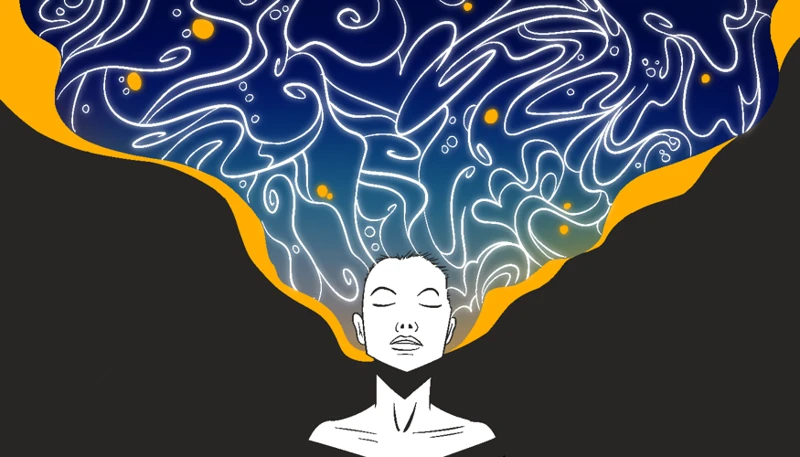As we close our eyes each night and drift off into dreamland, we enter into a realm of infinite possibilities. Dreams can transport us to another dimension, evoke powerful emotions or even provide a glimpse into the beyond. However, it can be challenging to understand the meaning behind these dreams, particularly when we experience vivid and intense ones known as epic dreams. What do these dreams mean? How can we interpret them? In this article, we delve into the science of sleep, explore the definition of epic dreams, and provide insights into their interpretation and spiritual significance. We also discuss various tools that can help us interpret and analyze our dreams, and examine the profound impact epic dreams can have on our emotional, creative, and spiritual development.
The Science of Sleep

Sleep is a fascinating biological process that every human being experiences. It is a state of consciousness where the body repairs itself, and the mind consolidates memories and learning. Despite its everyday basis, there is still much we do not know about the science of sleep. Scientists and researchers have been studying sleep for decades and have made great strides in understanding its different stages, including rapid eye movement (REM) sleep, which is crucial for dreaming. Along with its impact on our physical and mental health, it is essential to delve into the science behind sleep to appreciate the epic dreams that we have.
Stages of Sleep
Stages of Sleep
Sleep is a complex process with varying stages. In fact, there are typically four stages of sleep and one stage of REM (Rapid Eye Movement) sleep. Each stage is important for different reasons, and the entire sleep cycle lasts around 90 to 110 minutes.
Here is a breakdown of each stage of sleep:
| Stage | Description |
|---|---|
| Stage 1 | Light sleep, transitioning from wakefulness |
| Stage 2 | Deeper sleep, but still easily awoken |
| Stage 3 | Deeper sleep, with slower brain waves and bodily functions |
| Stage 4 | Also known as delta sleep, the deepest and most restful sleep |
| REM | The stage where most dreaming occurs, characterized by rapid eye movements and increased brain activity |
During each stage of sleep, the body undergoes a variety of physiological changes. For example, heart rate, blood pressure, and breathing all slow down during deep sleep. This slowing of bodily functions allows the body to replenish and repair itself, which is why getting enough deep sleep is crucial for overall health and well-being.
Understanding the various stages of sleep and their importance can also help us better understand the science behind dreams and the role they play in our lives.
REM Sleep
During the night, we go through several sleep cycles, each consisting of different stages of sleep. One stage that is particularly important during the dream process is rapid eye movement (REM) sleep. REM sleep is characterized by rapid eye movements, increased brain activity, and muscle atonia, meaning that our muscles are essentially paralyzed during this stage. This is thought to be a protective mechanism to prevent us from physically acting out our dreams.
REM sleep is also when we experience the most vivid and memorable dreams. Research has shown that during this stage, the brain is highly active, with increased activity in the prefrontal cortex, which is responsible for executive functioning, such as decision-making and planning. This may be why our dreams can sometimes feel so real and logical, despite often being nonsensical or surreal.
REM sleep typically occurs several times throughout the night, with each cycle lasting approximately 90 minutes. The first REM period usually begins about 70 to 90 minutes after we fall asleep and lasts for only a few minutes. As the night progresses, REM periods become longer, with the final REM stage lasting up to an hour.
While researchers have made significant strides in understanding the different stages of sleep, the exact purpose of REM sleep and dreaming is still not fully understood. However, many scientists believe that dreaming may serve an important function in memory consolidation and emotional processing.
Why We Dream
Throughout time, dreams have fascinated and puzzled scientists and psychologies alike. While there is still much we don’t know, there are many theories on why we dream. Here are a few of the most prominent ones:
| Theory | Description |
| Problem-Solving | This theory suggests that dreams are a way for the brain to solve problems or deal with unresolved issues from the day. During sleep, the brain continues to work on these issues, and dreams represent the solutions or progress made. |
| Unconscious Thoughts and Desires | Sigmund Freud believed that dreams are a reflection of our inner desires, unconscious thoughts, and unresolved conflicts. Dreams provide a safe space to process these deep emotions and thoughts that we might not be consciously aware of. |
| Memory Consolidation | During sleep, memories and experiences from the day are consolidated and stored in long-term memory. Dreams are a side-effect of this process, as the brain sorts through and organizes the information. |
| Neural Development | Research has shown that infants spend most of their sleep time in REM sleep, leading some scientists to believe that dreams are necessary for neural development and growth. This theory suggests that dreams help to integrate new information into existing neural pathways. |
| Random Neural Activity | This controversial theory suggests that dreams have no meaning at all, and are simply the result of random neural activity while we sleep. However, it is worth noting that studies have shown that certain types of dreams and dream content are more common than others, suggesting some level of purpose or meaning behind them. |
As we can see, there are many theories on why we dream, and the answer may not be as simple as any one of these alone. However, what we do know is that dreams have a significant impact on our emotional, mental, and even physical well-being.
Epic Dreams Defined

When we talk about “epic dreams,” we are referring to those dreams that leave a deep impression on us long after we wake up. These are the dreams that are vivid, complex, and often feel like they have some deeper meaning or significance. While everyone’s definition of an epic dream may be a little different, there are some common characteristics that tend to set these dreams apart from more mundane dreams.
Intense and Realistic Sensations: Epic dreams tend to feel incredibly vivid and immersive. When you wake up from an epic dream, it may take you a few moments to shake off the feeling that you were really there.
Complex and Multilayered: Unlike more straightforward dreams, epic dreams tend to be incredibly complex and multifaceted. They may involve multiple settings, characters, and storylines that all seem to be interconnected.
Emotionally Charged: Another hallmark of epic dreams is that they tend to be highly emotional. You may experience a wide range of emotions during an epic dream, from excitement and joy to fear and despair.
Symbolic: Epic dreams also tend to be highly symbolic, often featuring deeply meaningful imagery that may not be immediately apparent.
So why do we have epic dreams, and what is their significance? One possibility is that epic dreams are our brain’s way of giving us a glimpse into our deepest hopes, fears, and desires. They may also be a way for us to process complex emotions and memories that we may not be able to fully confront during our waking hours. Whatever the meaning of epic dreams may be, they continue to fascinate and inspire us, giving us a window into the mysterious workings of our own minds.
Interpretation of Epic Dreams

When we wake up from an epic dream, we often feel a mixture of awe, confusion, and curiosity. Such dreams can be incredibly vivid and lifelike, leaving us wondering about their significance and hidden meanings. Dreams have long been a source of fascination for scientific researchers, spiritual seekers, and everyday individuals alike. While some people might dismiss dreams as mere figments of our imagination, others believe that they can reveal deep truths about our inner selves and the world around us. In this section, we will explore the science and art of interpreting epic dreams – from common symbols and themes to personal reflections and spiritual beliefs. Get ready to delve into the mysterious and fascinating realm of dream analysis.
Common Themes and Symbols
When it comes to interpreting epic dreams, it’s important to understand the common themes and symbols that often appear. Here are some examples:
- Flying: Flying in a dream can represent a desire for freedom or a sense of accomplishment. It may also suggest a new perspective or approach to a situation.
- Water: Water can represent emotions and the subconscious mind. Calm water may indicate peace, while rough water may indicate turmoil or conflict.
- Animals: Different animals can represent different traits or qualities. For example, a lion may represent strength or leadership, while a rabbit may represent timidity.
- Death: Dreaming of death can be unsettling, but it’s important to remember that it often symbolizes the end of one thing and the beginning of another. It may also represent a desire for change or transformation.
- Lost or being chased: These dreams can indicate feelings of anxiety or insecurity. They may also suggest a need to confront a problem or situation head-on.
Of course, these are just a few examples of the common themes and symbols that can appear in epic dreams. It’s important to remember that the meaning of a dream can differ greatly depending on the person and their personal experiences and emotions.
Personal Interpretation
When it comes to interpreting epic dreams, personal interpretation plays a crucial role. This is because each individual’s experiences, thoughts, and feelings are unique and thus, the meaning of their dreams can only be truly understood by them. However, there are a few key factors that can help individuals better interpret their epic dreams.
Emotions: One of the most important aspects of personal interpretation is understanding the emotions felt during the dream. Emotions like fear, anxiety, and sadness can often indicate unresolved issues or hidden fears in the dreamer’s waking life.
Symbols: Dreams are often filled with symbols, many of which can have different meanings for different individuals. For example, a snake may represent fear for one person, while it may represent transformation for another. It is important for the individual to identify the symbols in their dream and explore what they mean to them personally.
Past experiences: Personal experiences can greatly influence the interpretation of epic dreams. For example, an individual who has experienced trauma may have recurring dreams about that trauma, and the meaning of those dreams may be different for them than for someone who has not experienced that trauma.
Intuition: Sometimes, the best interpretation of a dream comes from simply trusting one’s own intuition. The individual should reflect on their gut reaction to the dream and trust their inner feelings when trying to understand its meaning.
By taking these factors into consideration, individuals can gain a deeper understanding of their epic dreams and how they relate to their waking lives. However, personal interpretation should be combined with other tools and techniques for dream interpretation for a more comprehensive understanding.
Spiritual Significance of Dreams

As humans, we have always been intrigued by the mysterious world of dreams. From scientific explanations to personal interpretations, we have attempted to unravel the enigma of sleeping visions. However, for many, dreams hold a deeper meaning – a connection to the spiritual realm. The spiritual significance of dreams is a topic that has been studied and contemplated by various religious and cultural traditions around the world. Is there a divine message hidden in our dreams? Can they offer guidance and clarity in our waking lives? In this section, we will explore the spiritual aspects of epic dreams and their potential for connecting us to a higher power.
Religious and Cultural Interpretations
Throughout history, religion and culture have played a significant role in shaping the interpretation and importance of dreams. Many ancient civilizations, such as the Egyptians and Greeks, believed that dreams were messages from the gods or the dead. They saw dreams as a way to receive guidance or warnings from the deities.
In biblical times, dreams were also considered sacred and significant. In the Old Testament, Joseph’s dreams helped him interpret Pharaoh’s dreams and save Egypt from famine. In Islam, the prophet Muhammad had a dream that inspired him to spread the message of Islam.
Cultures around the world have their own beliefs and interpretations of dreams. For example, in some indigenous cultures, dreams are seen as a way to connect with ancestors or to receive spiritual guidance. In African cultures, dreams are believed to reveal one’s destiny and future. In many Native American cultures, dreams are seen as a way to communicate with animals and nature.
The interpretation of dreams can vary greatly depending on one’s religious or cultural background. In some cultures, certain symbols or images in dreams have specific meanings, while in others, they may have a completely different interpretation. For example, in Western culture, dreaming of a snake may be seen as a symbol of danger or deceit, while in some indigenous cultures, it may be a symbol of healing and transformation.
It is important to understand the cultural and religious context when interpreting dreams. People from different backgrounds may have different beliefs and interpretations of dreams, and it is essential to respect and honor those differences. By doing so, we can gain a deeper understanding of the significance and purpose of dreams in different cultures and traditions.
Connecting with the Divine
One of the most fascinating aspects of epic dreams is the potential for connecting with the divine. In many cultures, dreams have been seen as a way to receive messages or guidance from the spiritual realm. Dreams can provide a way to access the unconscious mind, which some believe can be a pathway to communicating with a higher power.
Different religions and cultures have their unique interpretations of dream symbolism that is often tied to their beliefs about the divine or the supernatural. Some cultures believe that dreams can reveal important insights about a person’s future, while others view them as a portal to communicate with ancestors or spirits.
For example, in Native American culture, dreams are considered vital and significant. They believe that dreams can be a means of communication with the spiritual world, and they often interpret them within the context of their natural surroundings. In Hinduism, dreams are sometimes thought of as divine revelations or messages from the gods, while in Christianity, the interpretation of dreams can play an essential role in spiritual discernment.
Regardless of one’s religious or cultural beliefs, connecting with the divine through dreams can be a transformative experience. It can provide a glimpse of a more significant universal truth or a deeper understanding of oneself. Dream analysis can help interpret and integrate these experiences into our daily lives, and offer a way to move closer to a sense of spiritual enlightenment.
| Religion/Culture | Belief about Dreams |
|---|---|
| Native American | Dreams are a means of communication with the spiritual world, interpreted within the context of nature. |
| Hinduism | Dreams are thought of as divine revelations or messages from the gods. |
| Christianity | The interpretation of dreams can play an essential role in spiritual discernment. |
Tools for Dream Interpretation

As we now understand the potential significance of our epic dreams, it is natural to want to dive deep into their interpretation. However, deciphering the true meaning of our subconscious mind can be an intimidating task. Fortunately, there are various tools and techniques available to help us navigate the complex world of dream interpretation. From keeping a dream journal to seeking professional analysis, these resources can provide valuable insights and empower us to unlock the messages hidden within our nightly adventures. Let’s explore some of these helpful tools below.
Dream Journals
Dream Journals
Keeping a dream journal is an effective way to start analyzing your dreams. It is a record of your dreams, thoughts, and feelings that you can refer back to. Here are some tips to optimize your dream journal:
- Keep it close to your bed: Keep your journal within reach, so when you wake up, you can jot down what you remember before the memory fades away.
- Be consistent: Create a habit of writing in your dream journal every day, even if you can’t remember your dream. You can write whatever comes to mind.
- Include details: Write down every detail you can remember about your dream, including the setting, characters, emotions, and any symbols or recurring themes.
- Include emotions: Don’t forget to write down how you felt during the dream and upon waking up. These emotions play an important role in understanding the dream’s meaning.
- Reflect on your dreams: After recording your dreams, take some time to reflect on them. Think about any connections to your waking life or any recurring patterns.
By keeping a dream journal, you can begin to identify patterns and themes in your dreams. It will also help you gain a deeper understanding of your emotions and subconscious mind.
Professional Dream Analysis
Professional dream analysis is a more in-depth way to interpret epic dreams. This process involves working with a trained and experienced therapist or analyst to explore the underlying meanings and emotions of the dream.
During a professional dream analysis session, the analyst will guide the individual through the dream, asking questions and encouraging them to explore any emotions or images that arise. The analyst will use various techniques, including free association and interpretation of symbols, to help the individual gain a deeper understanding of the dream’s significance.
Benefits of Professional Dream Analysis:
- Provides a safe and supportive space for exploring difficult emotions and experiences
- Offers expert guidance and interpretation to help individuals uncover subconscious patterns and themes
- Can aid in identifying and overcoming negative thought patterns or behavior
- Can lead to increased self-awareness and personal growth
However, it is important to note that professional dream analysis is not for everyone. It requires a willingness to be vulnerable and open to exploring the subconscious, which can be difficult for some individuals. It is also important to find a therapist or analyst who is trained in dream analysis and with whom the individual feels comfortable working.
When to Consider Professional Dream Analysis:
- If epic dreams are causing significant distress or interfering with daily life
- If personal interpretation or self-reflection has not provided clarity or resolution
- If an individual is struggling with recurrent dreams or nightmares
- If an individual is curious about exploring the deeper meanings and significance of their dreams
Professional dream analysis can be a powerful tool for gaining insight into the subconscious and achieving personal growth and healing. It is important to approach this process with an open mind and a willingness to explore the depths of the psyche.
Dream Workshops and Groups
One way to delve deeper into the interpretation of epic dreams is through participating in dream workshops and groups. These events offer a safe and supportive space to share and explore the meanings behind dreams with others who are also interested in dream analysis.
Benefits of Dream Workshops and Groups:
- Gain new perspectives and insights from other participants
- Develop a deeper understanding of your own dreams through sharing and discussing with others
- Learn different techniques and approaches to dream interpretation from professionals
- Receive support and validation for your experiences
In addition to traditional in-person workshops, there are now also virtual dream groups and online forums for those who cannot attend in-person events.
What to Expect at a Dream Workshop or Group:
- A facilitator who will guide the group through various exercises and techniques for interpreting dreams
- Opportunities to share and discuss your own dreams, as well as listen to others’ experiences
- Engaging in creative activities such as drawing or writing to further explore dream imagery
- Working in pairs or small groups for more focused dream analysis
It’s important to note that while dream workshops and groups can be beneficial, they are not a substitute for professional dream analysis. For those who have recurring or particularly intense dreams, seeking out a licensed therapist who specializes in dream interpretation may be necessary.
Dream workshops and groups offer a unique and supportive environment for exploring the meanings and significance behind epic dreams.
The Impact of Epic Dreams
As we explore the realm of dreams, we cannot ignore the profound impact that epic dreams can have on our lives. These vivid, larger-than-life experiences can leave us feeling perplexed, inspired, or even shaken to the core. Whether we view them as mere hallucinations or portals to alternate dimensions, one thing is certain: epic dreams have the power to shape our emotions, creativity, and spirituality in profound ways. Let us delve deeper into the ways in which these dreams leave a lasting impact on our waking lives.
Emotional Processing
Dreams, including epic dreams, play an important role in the emotional processing of events and experiences. During sleep, the brain processes and consolidates memories, and dreams provide an opportunity for the brain to replay and work through emotional experiences. This processing can lead to increased emotional intelligence, self-awareness, and even healing from past traumas.
The benefits of emotional processing through epic dreams include:
- Reduced stress and anxiety: By working through anxieties and unresolved emotions in epic dreams, individuals can experience a reduction in stress and anxiety levels. This can lead to improved overall mental health and wellbeing.
- Improved cognitive functioning: When we process emotions and memories during sleep, we free up cognitive resources that would have been used if these experiences were left unresolved. This can enhance cognitive functioning during the waking hours and improve our ability to focus, concentrate, and remember information.
- Increased self-awareness: The content of our epic dreams can provide us with insights into our true feelings, desires, and motivations. This increased self-awareness can lead to personal growth, improved relationships, and a better understanding of ourselves.
However, it’s important to note that not all epic dreams are positive or easy to process emotionally. Some dreams can be distressing or frightening, and it’s important to seek professional help if these dreams become persistent or interfere with daily life.
Emotional processing through epic dreams can be beneficial for individuals seeking to improve their mental and emotional wellbeing. By allowing the brain to work through unresolved emotions and memories, epic dreams can lead to reduced stress and anxiety, improved cognitive functioning, and increased self-awareness.
Creative Inspiration
One of the most fascinating and intriguing aspects of epic dreams is their power to inspire creativity. For many individuals, their most creative ideas come to them in their dreams, and as a result, they can be a valuable resource for artists, writers, and other creative professionals.
According to research, accessing the unconscious mind during deep sleep can lead to unique and original ideas that may not have been possible to conceive while awake. This is because during sleep, the brain is free to make new associations and connections, allowing for a more creative thought process.
In fact, many famous works of art and literature have been inspired by dreams. For example, Salvador Dali’s surrealistic paintings often drew inspiration from his own dreams, and the famous novel “Frankenstein” was reportedly inspired by Mary Shelley’s dream.
However, it’s important to note that not all creative inspiration from dreams will lead to successful endeavors. It’s crucial to carefully evaluate and analyze the ideas that arise from our dreams before attempting to bring them to fruition.
That being said, keeping a dream journal can be a useful tool for capturing and exploring creative inspiration. By recording our dreams and analyzing their symbols and themes, we can better understand our unconscious thought process and tap into our own unique creative potential.
The power of epic dreams to inspire creativity is a fascinating and valuable aspect of their significance. By embracing and exploring the creative potential of our dreams, we can unlock new depths of imagination and innovation.
Spiritual Growth
When it comes to epic dreams, they can have a significant impact on an individual’s spiritual growth. These types of dreams can bring about deep and profound insights into one’s self and the universe. Here are a few ways in which epic dreams can contribute to an individual’s spiritual development:
1. Increased Awareness: Epic dreams can increase an individual’s awareness of their place in the world and their connection to the universe. Through these dreams, people may gain a better understanding of their strengths, weaknesses, and motivations.
2. Spiritual Guidance: Many individuals see their epic dreams as a form of spiritual guidance. These dreams can provide them with insight, clarity, and answers to life’s big questions.
3. Healing: Epic dreams can also serve as a form of emotional and spiritual healing. They can help individuals to release negative emotional baggage or to connect with the divine to find inner peace and balance.
4. Connection to the Divine: Some people believe that epic dreams provide them with a direct connection to the divine. Through their dreams, they may receive messages or guidance from a higher power.
5. Meaning and Purpose: Epic dreams can help individuals to gain a deeper sense of meaning and purpose in their lives. These dreams can inspire them to pursue new paths or to recommit to existing ones, catalyzing personal or professional growth.
The significance of epic dreams in spiritual growth is undeniable. Through these dreams, individuals can gain insight, guidance, and a sense of connection to something beyond themselves. Whether it be a divine entity, the universe or just their innermost selves, these dreams can have a profound impact on the spiritual development of an individual.
Conclusion
In conclusion, the science behind epic dreams may still be somewhat shrouded in mystery and uncertainty, but one thing is clear: these dreams have the power to impact us on a deep and meaningful level. From emotional processing to creative inspiration to spiritual growth, epic dreams offer us a window into the unconscious mind and can help us better understand ourselves and our place in the world.
Whether you choose to interpret your epic dreams on your own using tools like dream journals or seek out professional analysis or group workshops, the insights and revelations that can come from understanding your dreams are truly invaluable.
So the next time you wake up from a particularly vivid or intense dream, take some time to reflect on its themes and symbols, explore its potential spiritual significance, and consider the ways in which it might be impacting you on a deeper level. Who knows what kind of insights and inspirations might be waiting for you within the realm of your dreams.
Frequently Asked Questions
How long do epic dreams typically last?
Epic dreams can last anywhere from a few minutes to over an hour. The length of the dream can also vary depending on the individual’s sleep patterns and the specific stage of sleep they are in.
Can epic dreams be explained by science?
Yes, while there are still unanswered questions about the purpose and meaning of dreams, researchers have made significant strides in understanding the biology and neuroscience of the dreaming process.
Should I be concerned if I don’t remember my epic dreams?
Not necessarily. Not everyone remembers their dreams, and this does not necessarily indicate a problem. However, if you consistently struggle with poor sleep or have other concerns about your sleep patterns, it may be worth discussing with a healthcare provider.
Can dream symbolism be different for different people?
Yes, dream symbolism can be very personal and may vary from person to person based on individual experiences, cultural beliefs, and personal associations.
What is lucid dreaming?
Lucid dreaming is the ability to consciously control or manipulate the content of a dream. This can be a powerful tool for exploring and working through psychological or emotional issues.
Can dreams be used in therapy?
Yes, dream work can be a powerful tool in therapy. By exploring the content and symbolism of dreams, individuals can gain insight into their subconscious thoughts and emotions, and work through personal issues.
Are all epic dreams significant or meaningful?
Not necessarily. While epic dreams can often be more vivid or memorable, they may not always hold special significance. It’s important to consider individual context and personal associations when interpreting dream content.
What is the difference between a nightmare and an epic dream?
A nightmare is typically an unpleasant or disturbing dream that causes fear, anxiety, or other negative emotions, while an epic dream may be more vivid or intense, but doesn’t necessarily have negative content.
Can the interpretation of a dream change over time?
Yes, the meaning of a dream may change as an individual’s personal experiences or psychological state changes. It’s important to approach dream interpretation as an ongoing process rather than a one-time event.
Are there any risks to interpreting dreams on your own?
While exploring and interpreting dreams can be a beneficial tool for personal growth and self-reflection, it’s important to remember that dreams are complex and may have many levels of meaning. If you have concerns or questions about the content of your dreams, it’s always a good idea to speak with a licensed mental health professional.








